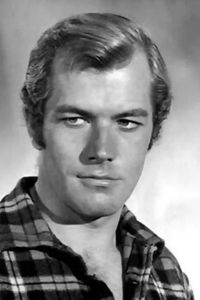Leon George Turrou was born on September 14, 1895, in Kobryn, Poland, to French and Polish parents. His father passed away six months before his birth, and his mother died shortly after. Turrou was adopted by a wealthy merchant and spent his youth traveling to Egypt, India, China, Japan, and Australia, attending schools in Berlin and London before moving to America at the age of 18.
Turrou's fluency in seven languages landed him a job as a translator at the New York Times. In 1916, he joined the French Army and fought on the Eastern Front, where he was wounded and recuperating in Paris when he fell in love with a Polish girl who had lived in China. After the war, the couple moved to China, where Turrou worked as an administrator and had two sons.
However, Turrou's wife and children failed to return from a visit to Siberia, and he was told they had been murdered during the Russian Revolution. Heartbroken, Turrou returned to America and joined the US Marine Corps. While stationed in France, he was assigned to accompany the American Relief Organization's mission to Moscow, where he traveled to Siberia to investigate his family's disappearance. To his surprise, he found them alive and well.
Turrou returned to America with his family in 1923 and started a business importing dehydrated mushrooms from Poland. When the venture failed, he became a postal clerk at the New York Post Office and later a Postal Inspector. Due to his language skills, he was tasked with translating suspected obscene material from overseas.
In 1928, an interview with FBI chief J. Edgar Hoover led to his appointment as an agent, despite lacking the normal qualifications. Over the next decade, Turrou was involved in several high-profile cases, including a shootout with "Pretty Boy" Floyd, the Lindbergh baby kidnapping investigation, and the investigation into the crash of the USS Akron.
Turrou's most notable case was the smashing of a Nazi spy ring in 1938. After the successful conclusion of the case, he resigned from the FBI to write "Nazi Spies in America" (1938). Hoover rejected his resignation and fired him.
During World War II, Turrou served on General Dwight D. Eisenhower's staff as an intelligence officer and was instrumental in rounding up suspected Nazi war criminals. He was awarded the Bronze Star in recognition of his service.
Turrou's book, "Where My Shadow Falls" (1949),chronicles his experiences with the FBI and as a lieutenant colonel with the CID during the war. His son, Victor, was killed in action in 1943 and is buried at the American Military Cemetery in Italy.
In 1949, Turrou began working for billionaire Jean Paul Getty in matters pertaining to security. He spent the rest of his life living in Paris, where he became known as the unofficial "American Mayor" of Paris and served as commander of the Paris chapter of the Veterans of Foreign Wars. Turrou died on December 10, 1986, probably in Paris.










